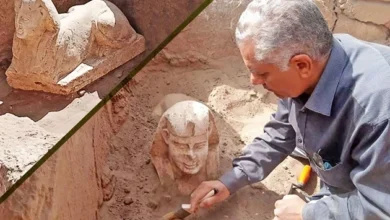Who was the last Queen of Ptolemaic Kingdom who married her brother?
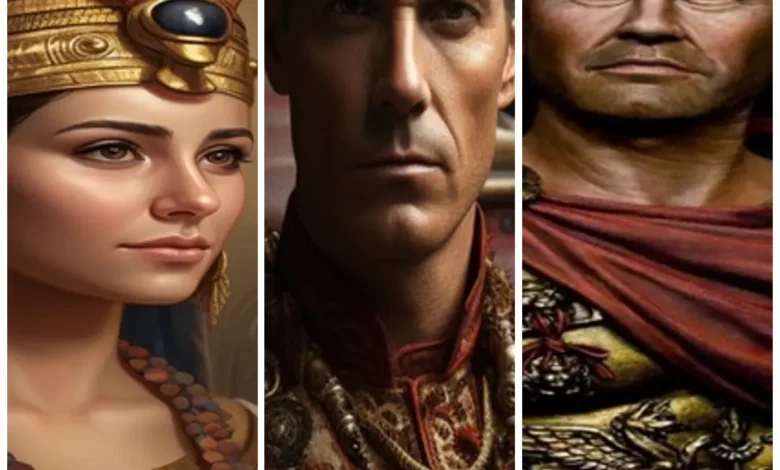
The final queen of Egypt, Cleopatra VII, made a lasting impression on history unlike any other woman. However, Cleopatra was the last Queen of the Ptolemaic Kingdom, and she also married her brother at the age of 13.
Her name is linked to sad fate, power, might, and love relationships. In popular culture, she is portrayed as a seductive beauty who drives great men insane. But considering that she was anything but beautiful in real life, how true is this image of her?
Wasn’t a beauty
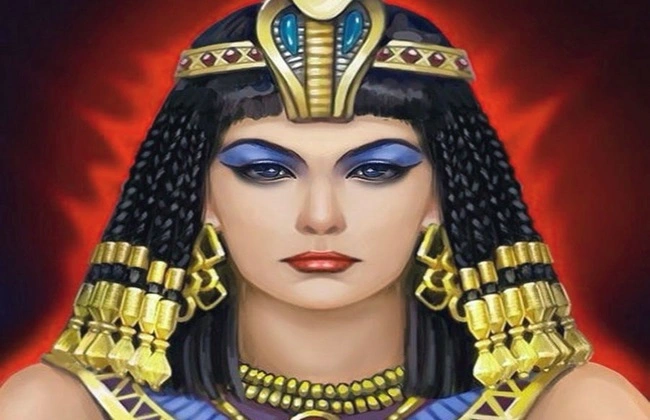
Born in 69 B.C., Cleopatra inherited her father’s position as co-empress of Egypt with her brothers when she was 17 years old. It is interesting to note that Cleopatra’s ancestors were Greek and immigrated to Egypt after Alexander the Great granted them land.
The Life of Cleopatra is an ambitious and powerful tale that defies the idealistic parameters of romance. People have been fascinated by her image for over two thousand years.
To this day, she remains one of the most popular ancient characters in cinema and literature, where she is mainly presented in the image of fatal beauty from the meeting with which men lost their heads. Despite her immense attractiveness, Cleopatra was far from gorgeous, despite what the general public believes.
The Greek philosopher Plutarch described her in his notes, mentioning her low stature, voluptuous physique, prominent chin, broad nose, and hunchback. Aside from her physique and slyness, she had nothing remotely feminine about her.
Cold calculation overruled Cleopatra’s beauty, gifts, and entire being as she considered the needs of the state or her interests.
One of the historians said of the Egyptian queen, “She was too independent and selfish.” He also observed that the Egyptian queen’s captivating voice captivated listeners.
Many men fell in love with Cleopatra from the first word they heard because of her enchanting voice, which was both sensual and charming.
She also sang and danced exquisitely, had amazing grace, and performed masterful lute and harp playing.
“Her demeanor, in addition to the exceptional persuasiveness of her remarks, exudes a great charm that is deeply ingrained in each and every word and action. Plutarch writes, “The very sounds of her voice caressed and delighted the ear.”
The Egyptian queen was surrounded by a halo of celebrity known as “the great beautician of the East” for many centuries, according to traditions surrounding her youth and beauty.
On the other hand, Cleopatra’s beauty secrets continue to sell well, even today. As treatments and cosmetics gain popularity, the manufacturer needs to say, “Cleopatra herself did it.” All of this is, however, essentially just fancy marketing and misconceptions.
Only Cleopatra, who liked wearing opulent, exquisite clothing, is known. She wore a wig, eye makeup, and lip balm, painted henna on her nails, palms, and feet, and wore clothing embroidered with numerous expensive stones to give the appearance of a maid. Whatever about Cleopatra’s chamber, jewelry, and attire, she liked luxury.
The most intelligent lady in history
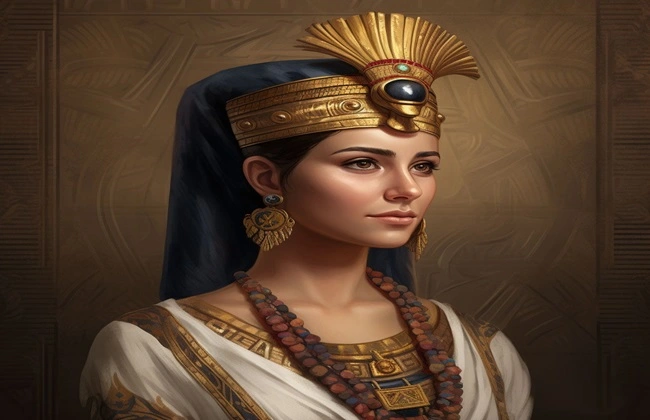
According to her contemporaries, she was a charming, intelligent, and clever woman who could captivate any man with her witty remarks and keen intelligence.
She had an excellent education, learning about politics, philosophy, art, and literature. Her vast and profound knowledge captivated and astounded those with whom she spoke.
Cleopatra fluently spoke seven languages, which was uncommon at the time. Without the assistance of interpreters, she preferred to deal personally with ambassadors and diplomats.
Under the influence of Rome, the Egyptian empire declined when Cleopatra ascended to the throne. Restoring the nation to its former splendor was an ambitious and difficult goal that she set for herself. She was successful in gaining her nation’s freedom for a while.
Cleopatra skillfully combined personal appeal and diplomatic strategies to accomplish her goals. She forged friendships with influential Roman generals, winning them over with her beauty and intelligence.
Union with Caesar and marriage to his brother
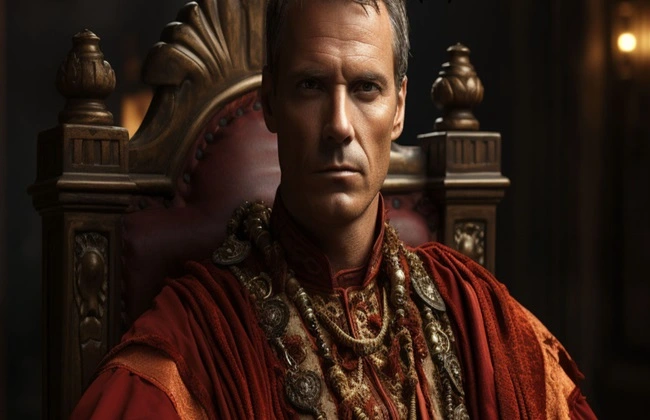
Since these two fathers bestowed the throne, 16-year-old Cleopatra’s first husband was her 13-year-old brother, Ptolemy Dionysus.
Legend has it that, even back then, Cleopatra had a harem of dashing young men to sate her sensual cravings. Nevertheless, her young husband chose to reign alone after receiving encouragement from Pofin, his teacher.
After his student gained power, the tutor wanted to take over as the true ruler, which sparked a revolution and drove Cleopatra to escape the city of Alexandria, fearing for her life.
Following the turmoil in Egypt, Caesar decided to get involved in the fight, bolstering his finances with Egyptian levies. Upon his arrival in Alexandria, Caesar was welcomed alone by Ptolemy XIII, who expressed dissatisfaction with his sister consort.
Caesar sent for a messenger to be dispatched to Cleopatra, not realizing that she was there. Even though the queen realized she had to see Caesar, she was terrified to return to the capital, where a vengeful mob would await her. Thus, she devised a devious scheme.
The queen secretly arrived in the city by boat with her accomplice, a fisherman, covered in a sack, which was then subtly transported into the palace.
Caesar was enchanted by the youthful Cleopatra’s cunning and attractive appearance. He completely fell in love with her.
According to eyewitnesses, the initial rendezvous between 20-year-old Cleopatra and 52-year-old Caesar lasted until the morning. Their dedication resulted in a legend that was passed down through the generations.
Consequently, his mentor cowardly fled, and Ptolemy XIII drowned in the Nile. Caesar won this power struggle, and Alexandria enjoyed peace.
As a result, Ptolemy XIII drowned in the Nile, and his mentor fearfully ran away. With Caesar’s victory in this power struggle, Alexandria was tranquil.
The union between Cleopatra and her second brother was a fake. Cleopatra remained Egypt’s governing queen and Caesar’s mistress. As an act of gratitude for her assistance, she arranged for him to take a two-month cruise on a lavish ship down the Nile.
Caesar and Cleopatra had a son named Caesarion in 47 BC. Although fate was unpredictable, this incident reinforced their bond and offered them hope for a shared future.
Caesar’s mistress was regarded as an “Alexandrian courtesan” at Rome due to her dislike of him. People were offended when Caesar placed a gilded statue of Cleopatra in the temple of Venus and started bestowing celestial honors upon her.
A plot against the Roman emperor was also hatched following rumors that he intended to declare the son of the Egyptian queen his heir. For that reason, in 44 BC, he was murdered.
Mark Antony’s seduction
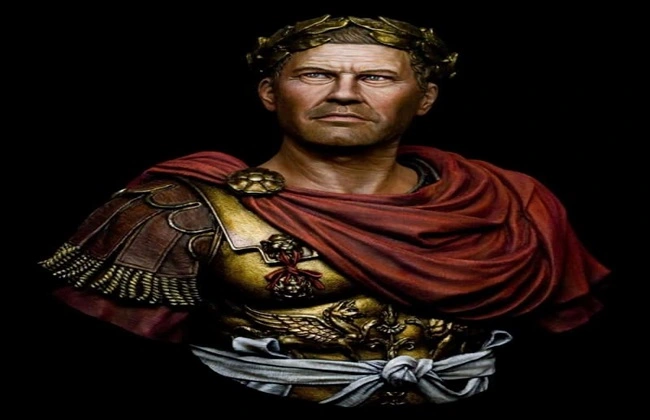
A year following Caesar’s demise, Cleopatra’s spouse passed away. There was uncertainty around the cause of his death, leading many to believe that the queen had a hand in his premature demise.
But the charges proved unfounded, and Cleopatra became the only queen of Egypt, appointing her 4-year-old son Caesarion as her heir.
But her strength was not what it once was. As a clever and astute ruler, Cleopatra realized that her position of authority would be precarious without the backing of the strong Roman Empire.
One of Rome’s most formidable generals, Mark Antony, was the obvious choice for her strong ally.
Octavia, the sister of Emperor Octavian, was Antony’s wife, yet his heart and mind were open to other emotions. Cleopatra decided to entice him.
She had a sumptuous yacht ready with crimson sails and opulent decorations for Antony’s arrival. Cleopatra took center stage with her opulent attire, captivating the man’s attention with her allure and beauty.
According to eyewitnesses, Cleopatra acted differently around Antony than Caesar. Despite her royal background, she played the part of a harlot, which drew the rugged Roman.
She had a way of owning herself and seducing Antony, who was already lured by life and women. He fulfilled every wish his sweetheart had for him.
Antony accepted Caesarion as the rightful heir to the Egyptian throne after Cleopatra convinced him to do so. This was a crucial move to further establish her authority in Egypt.
In Egypt, where he was content with his mistress, who gave birth to three children, and in Rome, where his wife resided, the warlord was consumed by conflict.
However, it was seen as offensive in his native country when Antony celebrated yet another military victory at Alexandria rather than Rome. Her brother was infuriated by his decision to divorce his wife as well.
Octavian decided to go to war against Egypt and won. Antony blamed Cleopatra for the defeat and began to avoid meeting her.
To save herself, the Egyptian queen, confident in her charms, secretly from Antony, sent a messenger to Octavian with valuable gifts.
Through her servants, she gave her former lover the news of her death while she waited to meet her new “victim.” Antony chose to kill himself with a sword after learning of the death of his fiancée because he was unable to cope with his grief.
When Cleopatra found out, she hurried to Antony out of desperation. The wounded guy gained strength from meeting her lover, but he passed away in her arms a short while later.
The 37-year-old queen then returned to her plan to woo Octavian, but he resisted her charms this time.
She soon learned of the reports that she would be imprisoned in chains behind Octavian’s chariot as a slave. The queen then killed herself out of desperation.
“These wrists are designed to hold jewels; shackles belong on the lower classes and criminals.” It is thought that Cleopatra uttered these last words before she passed away: “Never the queen of Egypt to be defeated.” Thus came to an end the ancient Egyptian queen’s life.


